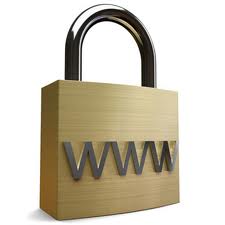 Hackers are very much a danger in the Internet today. They will go out of their way to compromise anything, from accounts to whole websites, and once they reach their target, the damage they can deal will be immense. Fortunately, there are ways on how to protect your website from hackers and anything else that could pose a threat. Read on to learn 7 tips that you can learn to protect your website.
Hackers are very much a danger in the Internet today. They will go out of their way to compromise anything, from accounts to whole websites, and once they reach their target, the damage they can deal will be immense. Fortunately, there are ways on how to protect your website from hackers and anything else that could pose a threat. Read on to learn 7 tips that you can learn to protect your website.
Always update to the latest version
This one is simple enough. Make sure your webhost provider has software that is up to date in terms of network and servers. This protects your site from any form of attack, as well as giving you access to more tools that will help you strengthen the security of your site. It helps that hackers can more often than not, only attack sites that they know the inside of; they won’t know what an updated version can do.
Use an integrity checker
File integrity checkers like the Advanced Intrusion Detection Environment, or AIDE, can notify you of any changes done to your site. This tool is very useful as a skilled hacker can break into your site at any time and make changes without you knowing about it. Take note that AIDE is available only to Linux.
Use a secure FTP
An unsecure FTP is an unencrypted protocol which more or less means all the data is sent through an open field. This includes important data like the username and password. Data sent through an unsecure FTP can easily be detected with software that are capable of capturing such data. To remedy this, use protocols like SCP or SFTP, which encrypts data as they are sent out, protecting the data.
Always review your log
Take the time to constantly review your server logs, including the access logs, traffic logs, and file integrity checker logs. Review them for any possible suspicious activity, and if there was, you will know what to do about it. In addition, check if your host uses a layer 7 firewall and ask them for any entries in the modsec_audit.log for your domain, allowing you to monitor and stop any hacking attempts to your site.
Use Add on Domain
The add on domain can ensure your domain’s secrecy. You can purchase a hosting account for this, allowing you to host and manage multiple domains under one account. To ensure safety, you will have to check each domain you have under the account, as well as check which domain was attacked by a hacker, so you can take steps to protect your other domains. So long as no one else find out what your username and password, it will be easy for you to secure the whole network this way.
Always change your password
Keep your password different. Change the password to your FTP/SSH accounts after some time has passed, like once every month or so. Using the same password for everything will make it easy for hackers to guess it and get into all your accounts; changing your passwords will serve to throw hackers off, keeping them guessing.
Use security plugins
As an added measure, you can add in plugins that focus on security. Sites like WordPress offer such plugins, giving your site the protection it needs against hackers.
BIO:
This content is brought to you by Test4prep.Are you seeking for this 1Z0-151 assistance? Let,s get the advantage of 1Z0-898 and pass your IT certification exam on first attempt with 100% money back guaranty.
